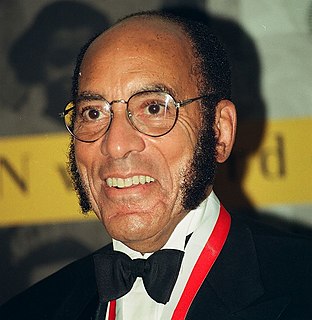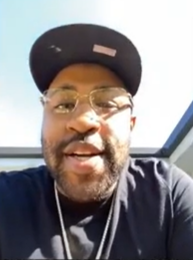A Quote by Kenny Stills
Most of my tattoos have a story. When people ask me, I tell them whatever they want hear. 'What's this tattoo? What does this mean? Does it hurt?' I tell them everything they want to know.
Related Quotes
I have no patience with people who want to tell me what's wrong. I only want to hear from the person who first tells me the solution and then fills me in on the problem. I don't want to hear that your basement is flooded. I want to hear that you've found the number to the cleanup company. Then tell me why you're calling them.
Do you know how some people can do anything?” “What do you mean?” “I mean, you tell them to write a tune, they give you a symphony right there. You tell them to write a book, they write you a novel in a day. You tell them to move a spoon without touching it, they move it. If they want something, they make it happen. Miracles, almost.
The meaning of secrecy is very different when the model of love is one of transparency. So to understand the politics of secrecy and revelation, you need to understand the larger culture in which the couple lives and also the culture of the couple itself. What does intimacy mean to them? Where does the couple draw the line between togetherness and separateness? That's what informs you. You always ask, "What would happen if I tell? What would happen if I don't tell?" Sometimes, the partner doesn't want to know.
Some people ask who they are and expect their feelings to tell them. But feelings are flickering flames that fade after every fitful stimulus. Some people ask who they are and expect their achievements to tell them. But the things we accomplish always leave a core of character unrevealed. Some people ask who they are and expect visions of their ideal self to tell them. But our visions can only tell us what we want to be, not what we are
Really the only motivation is through deliciousness; cooking great food that people want to eat again. I want them all to achieve what they all want to do, and I ask then all what they want to do in 5 years. I don't care what the answer is, I can help them all get there as long as they tell me what they want.
Why do we tell stories? It's because we want to connect to people, we want to tell them who we are, we want to tell them a story that affects us, that impacts us. And to help a young filmmaker doing a short or independent film is my testament, I think, is my desire to really make sure that our younger generations get passed along all the elders' experience and to literally have the image - to literally carry them on their shoulders and say, 'This is what the world is. This is how the world operates. Let me show you how.'
Most people tell you they want to get out of kindergarten, but don't believe them. Don't believe them! All they want you to do is to mend their broken toys. "Give me back my wife. Give me back my job. Give me back my money. Give me back my reputation, my success." This is what they want; they want their toys replaced. That's all. Even the best psychologist will tell you that, that people don't really want to be cured. What they want is relief; a cure is painful.
People have taught me what most doctors don't learn, in other words, when somebody does better than expected, the doctor will tell them they're doing very well and to keep it up. I learned to say, "You didn't die when you were supposed to so what's going on?", and they always had a story to tell me.
I don't ask my students to have studied film or any education in general. What I ask them is to come and sit and tell me a story, and the way they choose it and tell it, for me, the best criteria for whether they are right for making films. There's nothing more important than being able to tell your story orally.






































